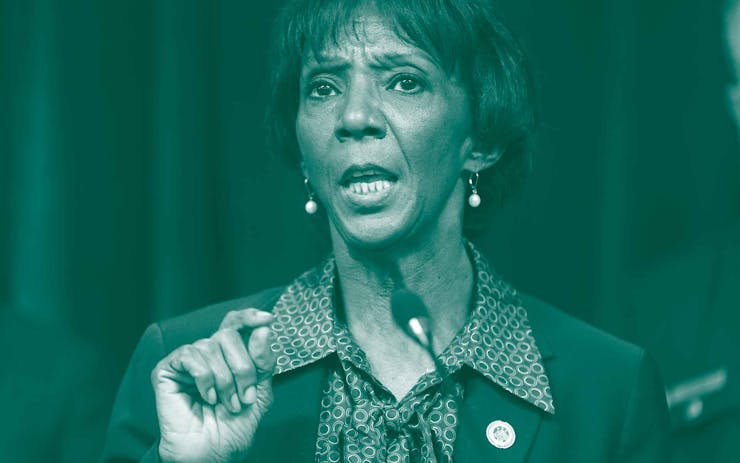The fruits of cannabis legalization continued to blossom in the Golden State Thursday.
Los Angeles County district attorney Jackie Lacey announced Thursday the filing of a motion to expunge 66,000 marijuana convictions dating back to 1961—including 62,000 felony convictions and 4,000 misdemeanors. A superior court judge signed the order Tuesday.Lacey’s motion removes felonies from the records of 22,000 people. About 15,000 individuals now no longer have a criminal record at all.
According to reports, Lacey’s motion removes felonies from the records of 22,000 people. About 15,000 individuals now no longer have a criminal record at all. Cannabis convictions can alter life trajectories—narrowing education, housing, and employment options for decades after something as little as getting busted for a joint.
Voter-approved, legally mandated, computer-assisted justice
California police made 2.3 million marijuana arrests during decades of cannabis prohibition in California, California NORML estimates.
In 2016, voter-approved Prop. 64 legalized cannabis, and de-felonized certain marijuana crimes like low-level dealing. Prop. 64 also grants resentencing rights to offenders for crimes that are now downgraded. And Prop 64 granted expungement rights to those with pot convictions for activity that is now considered legal.
One big catch: it still takes a lawyer, about $1,000, and several months to effect an expungement through the state’s byzantine county court system.
As a result, the non-profit Code For America developed a computer tool allowing prosecutors to rapidly identify marijuana convictions eligible for expungement. San Francisco and San Diego first used the ‘Clear My Record’ tool in 2018. In 2019, lawmakers mandated state prosecutors proactively expunge eligible marijuana convictions in their jurisdiction by July 2020.
All California counties now have access to Clear My Record technology to review Prop 64 convictions by July 1, 2020, as required by AB 1793.
Our team stands at the ready to help all CA counties provide this much needed relief: https://t.co/QBBcfZa7NN#JusticeAtScale
— Code for America (@codeforamerica) February 13, 2020
Lacey’s motion satisfies that requirement and does so at a time when she’s running for reelection against two challengers, including former San Francisco attorney George Gascon. Los Angeles County continues to have some of the most backward local cannabis laws in the state.
Four years after legalization, the county has not written a dispensary ordinance, let alone licensed a store. Unincorporated Los Angeles County has a population of 1 million people, with at least one dead and 31 injured from tainted THC vapes sold on L.A. county streets in 2019.
Looking for legal cannabis? Leafly has all your local menus
L.A. County cannabis prohibition took a notorious toll on minority communities located there. While cannabis use rates are roughly similar across racial and ethnic groups, drug enforcement focused on high-drug crime minority neighborhoods, resulting in arrest disparities. Los Angeles County is 44.6% Latino, 48.7% white, and 11% Black. Lacey’s motion affects 53,000 people, 32% Black, 45% Latino and 20% are white.
“What this does is correct that inequity of the past,” Lacey told the Los Angeles Times. “It gives them a start, a new start.”
Newer legalization states like Illinois have baked in expungement and resentencing, while future legalization states like New York may do the same.




